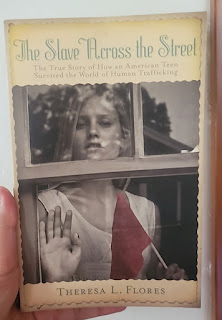Whenever people begin consuming pornography, it's usually to fill a void in their life. People who struggle with loneliness, anxiety, or depression will turn to pornography to cope with their declining mental health. Most people believe that pornography is a "healthy" outlet to "deal with your struggles." This couldn't be further from the truth. Rather than feeling a release from stress or anxiety, this can actually fuel your issues with mental health. Porn negatively impacts your mental health.
"Have I not commanded you? Be strong and courageous. Do not be afraid; do not be discouraged, for the Lord your God will be with you wherever you go." Joshua 1:9
Search This Blog
How Pornography Impacts Mental Health
Whenever people begin consuming pornography, it's usually to fill a void in their life. People who struggle with loneliness, anxiety, or depression will turn to pornography to cope with their declining mental health. Most people believe that pornography is a "healthy" outlet to "deal with your struggles." This couldn't be further from the truth. Rather than feeling a release from stress or anxiety, this can actually fuel your issues with mental health. Porn negatively impacts your mental health.
The Connection Between Human Trafficking and PTSD
Let's start out with a definition of what PTSD is. According to the Mayo Clinic, post-traumatic stress disorder (better known as PTSD) is a mental health condition "that is triggered by a terrifying event — either experiencing it or witnessing it." These "events" can include actual or life-threatening violence, serious injury, or sexual abuse or exploitation. In many cases, when we hear the word "PTSD," we think of veterans, as they witnessed events none of us can fathom. However, human trafficking victims do get overlooked when discussing PTSD.
What are the symptoms of PTSD? As stated by the Anxiety & Depression Association of America, there are three main types of symptoms:
- Re-experiencing the trauma through intrusive distressing recollections of the event, flashbacks, and nightmares.
- Emotional numbness and avoidance of places, people, and activities that are reminders of the trauma.
- Increased arousal such as difficulty sleeping and concentrating, feeling jumpy, and being easily irritated and angered.
The Slave Across the Street Book Review

The Harms of Children Consuming Pornography
- "Accidentally stumbling upon pornographic images when trying to view their material on the internet. (Let’s face it, everything is only one click away anyway!) Children as young as eight or nine are coming across these materials."
- "Accidentally stumbling across and or coming in contact with a parent’s and or a close adult’s pornographic material if these things are in or laying around the house."
- "Sexual predators who have purposefully exposed these young children to pornography for the purpose of grooming them for sexual exploitation."



